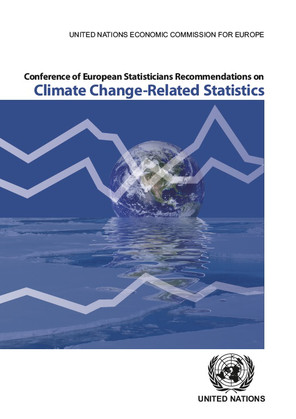- Biblioteca CEPAL
- Biblioguias
- Estadisticas Ambientales en inglés
- Environment and climate change statistics for Latin America and the Caribbean
- Climate change statistics and indicators
Environment and climate change statistics for Latin America and the Caribbean
Climate change indicators
Climate Change (CC) is a transversal and complex phenomenon, which includes economic, social and environmental dimensions that interact with each other. The statistical description of the environmental dimension is the least developed. The FDES allows the construction of environmental statistics that describe climate change, in all the stages defined by the Intergovernmental Panel on Climate Change (better known by its acronym in English, IPCC), that is Precursor Processes; Evidence; Impact and vulnerability; and Mitigation and Adaptation. These statistics are present across all components of the FDES, from atmospheric conditions or greenhouse gas emissions to biodiversity, the impact of disasters and diseases associated with climate change.
The Statistics Division of the United Nations Economic and Social Council developed a global set of statistics and indicators on climate change, which was approved by the United Nations Statistical Commission in decisions 47/112 (see E/2016/24-E/CN.3/2016/34) and 49/113, in collaboration with the Secretariat of the United Nations Framework Convention on Climate Change, to promote the relationship between policies and statistics . The five policy areas of the Intergovernmental Panel on Climate Change are broken down into 34 themes. In each domain, the most important indicators are listed to describe the themes, thereby guiding countries in developing national climate change statistics programs in a comprehensive and balanced manner. Thus, the global set of climate change statistics and indicators contains 158 indicators and their underlying statistics.
More information at UN Statistics Division
-
-
Climate Change 2021: The Physical Science Basis by
Publication Date: 2021
-
 Climate Change 2022: Impacts, Adaptation and Vulnerability
by
Publication Date: 2022The IPCC has finalized the second part of the Sixth Assessment Report, Climate Change 2022: Impacts, Adaptation and Vulnerability, the Working Group II contribution. It was finalized on 27 February 2022 during the 12th Session of Working Group II and 55th Session of the IPCC.
Climate Change 2022: Impacts, Adaptation and Vulnerability
by
Publication Date: 2022The IPCC has finalized the second part of the Sixth Assessment Report, Climate Change 2022: Impacts, Adaptation and Vulnerability, the Working Group II contribution. It was finalized on 27 February 2022 during the 12th Session of Working Group II and 55th Session of the IPCC.
-
2019 Refinement to the 2006 IPCC Guidelines for National Greenhouse Gas Inventories by
Publication Date: 2019 -
Climate Change 2022: Mitigation of Climate Change by
Publication Date: 2022The IPCC has finalized the third part of the Sixth Assessment Report, Climate Change 2022: Mitigation of Climate Change, the Working Group III contribution. It was finalized on 4 April during the 14th Session of Working Group III and 56th Session of the IPCC.



